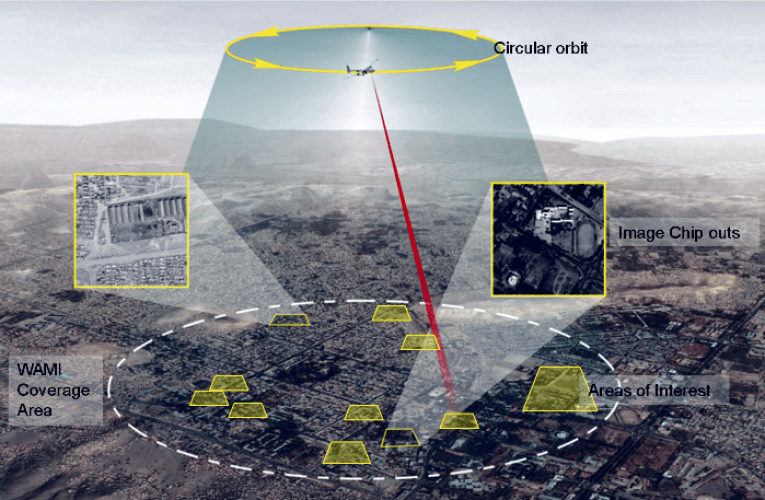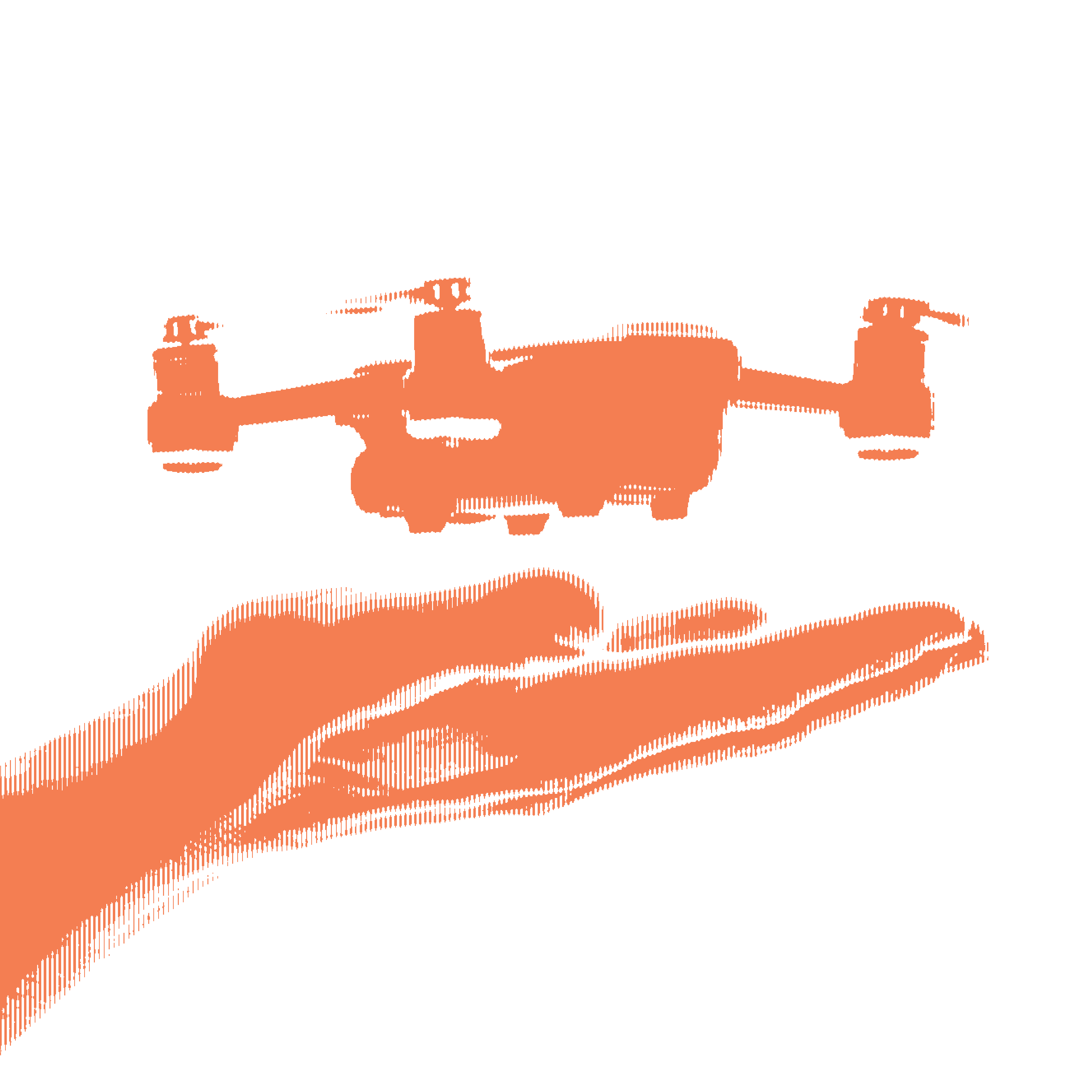
From May through October 2020, if Baltimore residents tilted their heads toward the sky they might have caught a glimpse of a Cessna T207 cruising in circles above the city. Closer inspection would have revealed something unusual about the propeller planes: an array of military-grade HawkEye II Wide Area Surveillance System cameras strapped to their bellies.
Employed by the Baltimore Police Department (BPD) as part of the Aerial Investigation Research (AIR) Pilot Program to help combat violent crime, the so-called “spy planes” were lambasted by critics for violating civil liberties and disproportionately targeting communities of color, yet praised by others as a necessary measure against spiking homicide rates. Operated by Persistent Surveillance Systems (PSS), the Cessnas flew up to 11 hours a day over Baltimore during their six-month pilot run, monitoring neighborhoods at a cost of about $3.7 million.
With the support of the Pulitzer Center, grantee Joanne Cavanaugh Simpson’s State of Surveillance project provided an in-depth look at the aerial surveillance program, including its impact on Baltimore communities and the debates surrounding the efficacy of the technology. The result of a months-long investigation by Simpson, which included tracking publicly available Federal Aviation Administration (FAA) data, the series has continued to inform commentary and reporting on a technology that may possibly spread to other cities in the U.S.
Disclaimer: Baltimore’s AIR Pilot Program was funded by Pulitzer Center donor Arnold Ventures, LLC, a philanthropic fund headquartered in Houston, Texas. The organization also funded outside evaluations of the pilot program, including an audit by New York University’s Policing Project. In January 2021, Arnold Ventures announced it would no longer be funding the technology for the time being, including a proposed surveillance program in St. Louis.
“I write a lot about society and technology and how they overlap, for better and for worse, in education, social justice, and culture,” Simpson explains. “Surveillance, especially police surveillance, can roll out in many of these cases before there are any really clear policies on use, before there are laws, before there is an understanding of the outcomes. Police surveillance is a very important issue because it can disproportionately fall on Black communities. That’s what launched the project.”
On February 3, 2021, Baltimore’s spending board voted unanimously to cancel the PSS contract, some three months after the last plane took flight. The city defended its use of the program on March 8 before the U.S. Court of Appeals for the Fourth Circuit, which decided at the end of 2020 to hear an appeal filed by the ACLU after a lower court green-lit the pilot. “Prying Eyes,” the third article in Simpson’s series, is cited in the NAACP Legal Defense & Education Fund’s amicus brief in support of the ACLU.
“Simpson addressed the issues and the technology in-depth, in a way that many shorter pieces in other outlets might not be able to given space constraints,” Ashley Gorski, a senior staff attorney with the ACLU National Security Project, commented. “It was important to elevate this issue in Baltimore and within communities directly affected.”
According to Simpson, “Prying Eyes'' was the first article about the pilot program “to evaluate the minimal arrest results aided by the aerial images; and to deeply analyze the coverage areas to that point, with flights over predominantly Black communities.” By tracking the FAA data, the series, which appeared in Baltimore magazine, demonstrated how PSS planes flew over areas of protests following the death of George Floyd and even ventured outside of Baltimore into surrounding counties.
“This technology poses enormous threats to privacy and civil liberties,” Gorski said. “We're crossing the Rubicon when we're talking about giving police the ability to record the outdoor movements of a population of 600,000 people. It’s a totalizing form of surveillance.”
Published in December 2020, Simpson’s final piece on the aerial surveillance program delved into outside evaluations of the PSS planes, including an audit by New York University’s Policing Project, which determined that while the BPD largely abided by its contract, the department also issued requests for data not specifically tied to crime scenes. Those requests and the BPD’s failure to delete images after 45 days went against the PSS contract’s limitations, also raising civil liberties concerns.
“The primary conclusion of our audit was that, given how powerful and potentially invasive this surveillance can be, no city should deploy this technology without first passing a law that sets strict boundaries on its use,” Farhang Heydari, executive director of the NYU Policing Project said. “Legislatures should not leave it to police, companies, or even the courts to determine these guardrails on their own.”
Even so, PSS founder Ross T. McNutt, a retired U.S. Air Force colonel, remains determined to win over other cities dealing with their own surges of violent crime. In January 2021, a PSS contract received first-round approval by the St. Louis Board of Aldermen by a vote of 15-14. Back in September 2020, Simpson was interviewed in a St. Louis Public Radio piece highlighting Baltimore’s experience thus far under the aerial surveillance program and what its implementation might mean for Missouri.
With the pending decision by the full Court of Appeals, and the fate of the program still in question in St. Louis, it’s yet to be determined if PSS’ technology will advance beyond its initial application in Baltimore. But it seems certain that Simpson’s project will continue to play a key role in educating officials and the public alike about the use of such persistent aerial surveillance technologies going forward.
Heydari concluded: “Joanne's reporting provided the most in-depth and meaningful press coverage of the civil rights and civil liberties issues raised by the Policing Project's audit—issues that too frequently are ignored when it comes to assessing the impacts of policing technologies.”









